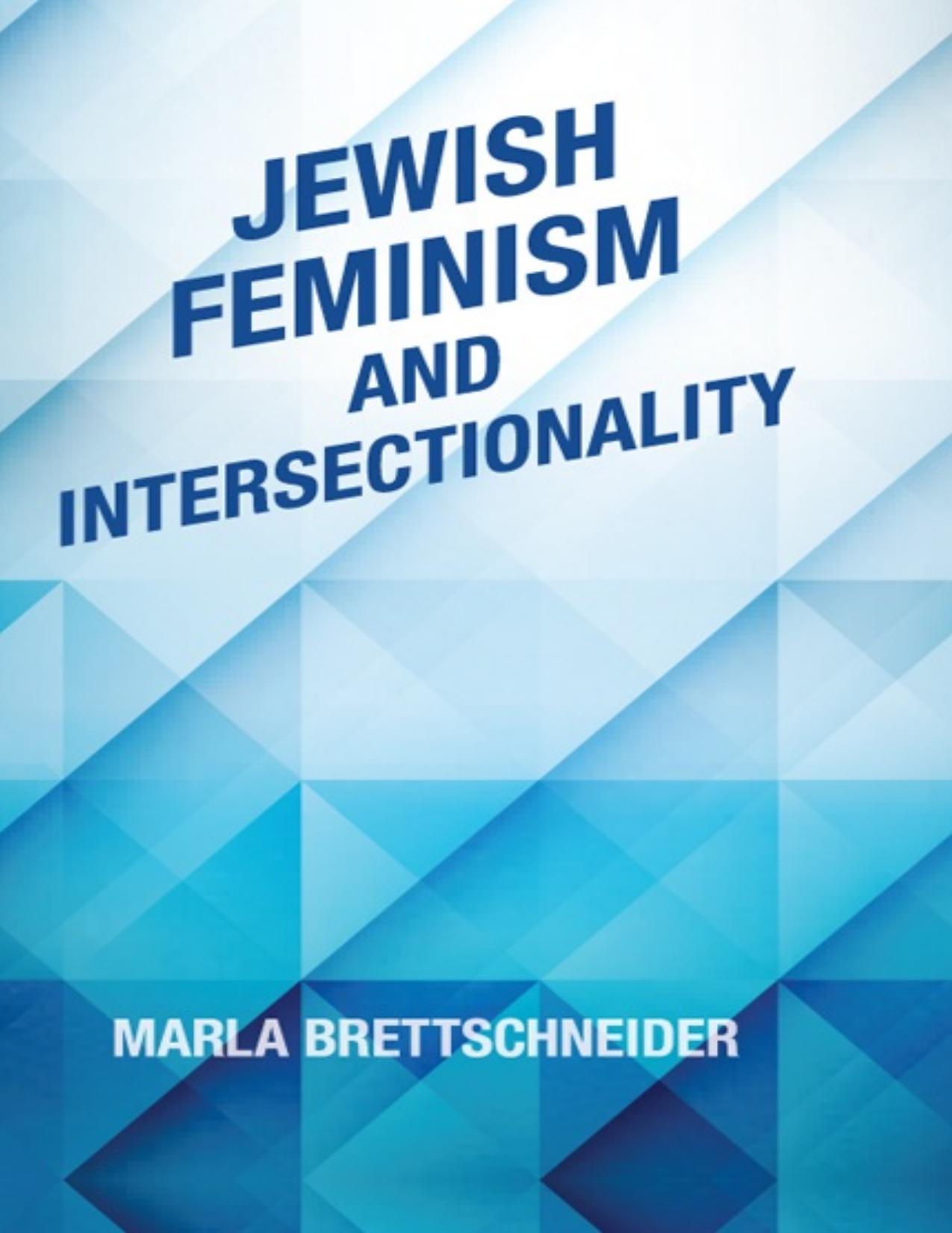Jewish Feminism and Intersectionality by Marla Brettschneider

Author:Marla Brettschneider
Language: eng
Format: epub, pdf
Publisher: State University of New York Press
Published: 2016-11-14T05:00:00+00:00
Moving On
This chapter, like the book as a whole, addresses work in process, a movement in creation. Queer feminist Jews and others—alone, in pairs, small groups, and large communities—are taking ritual seriously as part of queer spiritual life, celebration, and liberation. I applaud the creative and revolutionary work being done and in this chapter have made a call to keep our new ideas and practices in the religious/spiritual realm in mutually empowering relation with ideas in secular and intersectional self-consciously political theory. With the assistance of secular critical theory, let us take a moment to return to the specific idea of reclaiming the mikvah for queer Jews. A group of queer Jews may develop a mikvah ritual for a one-time experience, or repeat it cyclically. In the traditional version, a person going into the mikvah is naked and checked carefully for any hairs or particles on the body that would come between the woman’s body and the water. Women have often found this process humiliating. Transfolk generally cannot even use traditional mikvas. Queers and all women could use the mikvah as a time to reconnect to our bodies, our genders, our sexualities, and our skin coloring and racial heritage, turning what has often become the legalistic “checking” into a celebration.
Jewish queers often express the need to redefine the spaces and textures of what have hegemonically been designated as holy and profane. Although some might find this unappealing or too controversial, a group might purposely include wearing or dipping into the water something that would have commonly suggested impurity. Ritually dripping a drop of lubricant into the water would make the mikvah halachically (in Jewish law) unkosher (unsuitable for ritual use), but participants might see it as a way to enliven the “living waters” with a symbol of queer (and hopefully safe) sex. For those who have lived through this age of AIDS, such a moment of purification which points directly to queer sex could be particularly empowering. As another idea, in the traditional ceremony the individual takes three dunks, reciting a blessing and completely submerging oneself in the body of water. As a group ritual, a community may reclaim the three submersions. Together they could rewrite the blessing to address three aspects of import to the group. Each submersion could be named, with all invited to dunk for two of the three, and one specifically reserved for those newly coming out in some sphere of their lives. In this way, linkages across members in a diverse community and in the processes of (be)coming out can be explicitly acknowledged while also attending to the special needs of those newly (be)coming queer. Nehirim (http://www.nehirim.org/) is an example of a Jewish queer space that has worked in various ways with reclaiming mikvah. Experiencing freedom with one’s body, the visible physicality of what we mark as race, ableness, gender, and sexuality in the context of the ritual can be part of the process of doing so in many aspects of one’s life beyond the intentionally ritualized time/space.
Download
Jewish Feminism and Intersectionality by Marla Brettschneider.pdf
This site does not store any files on its server. We only index and link to content provided by other sites. Please contact the content providers to delete copyright contents if any and email us, we'll remove relevant links or contents immediately.
The Power of Habit by Charles Duhigg(3140)
Man's Search for Meaning by Viktor E. Frankl(2674)
Mckeown, Greg - Essentialism: The Disciplined Pursuit of Less by Mckeown Greg(2443)
MOSES THE EGYPTIAN by Jan Assmann(2417)
Devil, The by Almond Philip C(2333)
The Complete Dead Sea Scrolls in English (7th Edition) (Penguin Classics) by Geza Vermes(2283)
Unbound by Arlene Stein(2277)
I Capture the Castle by Dodie Smith(2039)
Schindler's Ark by Thomas Keneally(1890)
The Invisible Wall by Harry Bernstein(1808)
The Gnostic Gospel of St. Thomas by Tau Malachi(1799)
The Bible Doesn't Say That by Dr. Joel M. Hoffman(1682)
The Secret Doctrine of the Kabbalah by Leonora Leet(1612)
Political Theology by Carl Schmitt(1586)
The Jewish State by Theodor Herzl(1536)
A History of the Jews by Max I. Dimont(1533)
The Dead Sea Scrolls Bible by Martin G. Abegg(1519)
The Book of Separation by Tova Mirvis(1491)
Oy!: The Ultimate Book of Jewish Jokes by David Minkoff(1375)
